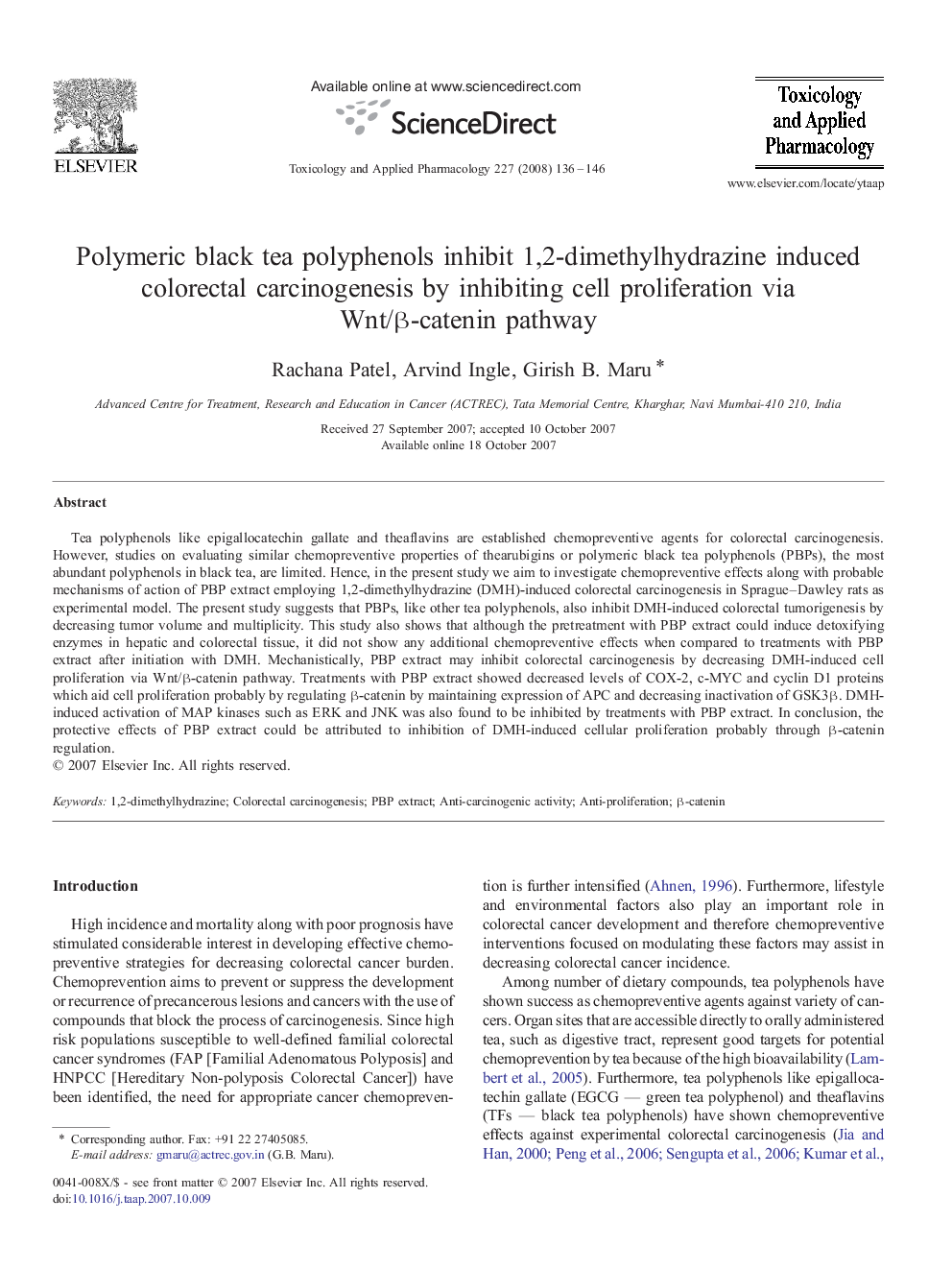| Article ID | Journal | Published Year | Pages | File Type |
|---|---|---|---|---|
| 2571426 | Toxicology and Applied Pharmacology | 2008 | 11 Pages |
Tea polyphenols like epigallocatechin gallate and theaflavins are established chemopreventive agents for colorectal carcinogenesis. However, studies on evaluating similar chemopreventive properties of thearubigins or polymeric black tea polyphenols (PBPs), the most abundant polyphenols in black tea, are limited. Hence, in the present study we aim to investigate chemopreventive effects along with probable mechanisms of action of PBP extract employing 1,2-dimethylhydrazine (DMH)-induced colorectal carcinogenesis in Sprague–Dawley rats as experimental model. The present study suggests that PBPs, like other tea polyphenols, also inhibit DMH-induced colorectal tumorigenesis by decreasing tumor volume and multiplicity. This study also shows that although the pretreatment with PBP extract could induce detoxifying enzymes in hepatic and colorectal tissue, it did not show any additional chemopreventive effects when compared to treatments with PBP extract after initiation with DMH. Mechanistically, PBP extract may inhibit colorectal carcinogenesis by decreasing DMH-induced cell proliferation via Wnt/β-catenin pathway. Treatments with PBP extract showed decreased levels of COX-2, c-MYC and cyclin D1 proteins which aid cell proliferation probably by regulating β-catenin by maintaining expression of APC and decreasing inactivation of GSK3β. DMH-induced activation of MAP kinases such as ERK and JNK was also found to be inhibited by treatments with PBP extract. In conclusion, the protective effects of PBP extract could be attributed to inhibition of DMH-induced cellular proliferation probably through β-catenin regulation.
